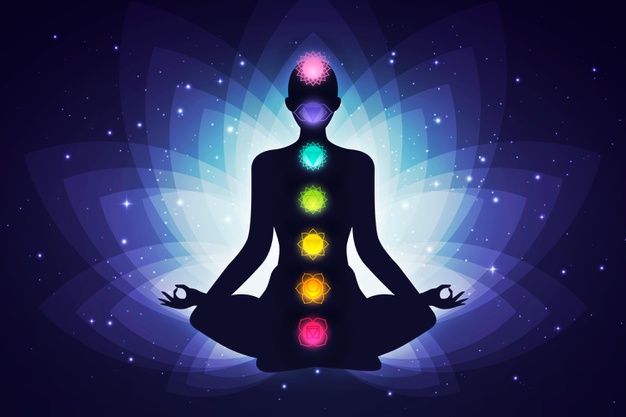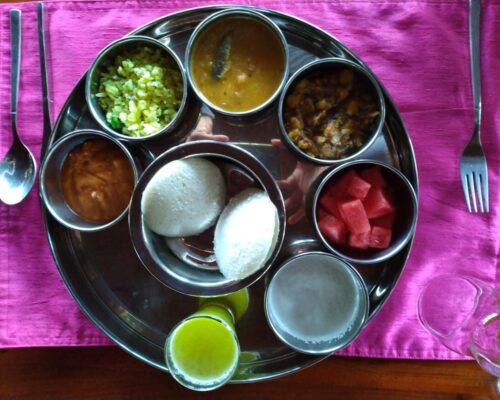With a history and unbroken legacy of over 5000 years, Yoga is the oldest, most structured practice of self-development and self-fulfillment. Including ethical disciplines, physical postures, breathing control, and meditation as the pedagogy, Classical Yoga has been a tool of Oriental Spirituality, which has gained in popularity, fame, and following across the globe in the recent decades. Even corporates have boarded the bandwagon after recognizing the benefits vis-a-vis a healthier, more creative, and relaxed workforce, and are sponsoring Yoga fitness programs across the hierarchy.

A series of studies have uncovered that a few minutes of Yoga in the morning, at night, or even during a lunch break, can reduce stress and increase productivity. Yoga’s effectiveness in stress relief is owing to, aside from the physical benefits it brings, also elicits a good mood, heightened mindfulness, and a productive dose of self-compassion.
Let us explore the Stress-Relief Techniques espoused in Yoga. You will find that many of the popular and contemporary techniques of stress reduction derive from Yoga, same as physical techniques such as pilates too derive from Yoga:
Stretching
Controlled breathing
Physical movement
Mental imagery
Meditation

As Yoga becomes increasingly popular, larger audiences are discovering the benefits this ancient practise brings to a stressful life. Yoga means bring together or union, and it does just that, bringing together the mind, body, and spirit. But Yoga lends itself to spiritual transformation or stress management and physical well-being, with numerous benefits.
But establishing a consistent Yoga routine is a must to experience the benefits that Yoga brings. Here we will enumerate a stress management Yoga routine intended for beginners who are yet to understand that there is always time for Yoga. But for the sake of pedagogic completeness, we will explain a few features of Yoga.
Exercise
Hatha Yoga is the physical practice of yoga asanas. Hatha Yoga comes in many different ways, from slow and focused on stretching too fast and more exerting. Pick one that meets your physical fitness and personality and start with the practice; all of them bestow the same benefit when it comes to stress reduction. Any exercise will help relieve stress by keeping the body healthy and releasing endorphins – the feel great natural hormones.
Stretching by way of mindful Yoga asanas is great to relieve stress. When stressed, the tension in the body makes you feel tight, quite often causing pain. The stretching of Yoga releases pressure from focussed areas, including the hips and shoulders. Lower back pain relief is another common benefit of Yoga.
Breath Control
Pranayama, an all-important part of Yoga practice, translates well to everyday life, even off the mat. Yoga increases your awareness of the breath, making it a tool for relaxing the body. Breathing is an involuntary act, yet you can choose to regulate the breath. Just learning to take deep breaths and realising this can be a quick way to combat stressful situations is amazingly useful.
Clearing the Mind
We live in a hyperactive world, at least when it comes to the mind. Our minds are racing from one thought to another, weaving possible scenarios for the future, mulling over incidents from the past. All this mind work is tiring and stressful.
Yoga offers several techniques for taming the instant gratification monkey in our mind. One is breathwork, as outlined above. Each breath is tied inextricably to the present moment; you are not breathing in the past or the future, but only right now. Focusing on each inhale and exhale to the exclusion of other thoughts is one way to clear the mind, It is also a basic meditation technique. In addition, the performance of Yoga poses, or asanas, also acts as a form of meditation. The poses are so physical and have to be done with such concentration, that all other thoughts and worries are put to the side, giving your brain a much-needed break.
Relaxation
Each Yoga session ends with five to ten minutes spent relaxing in corpse pose – savasana. While this enforced relaxation can be difficult at first, eventually it serves the purpose of a total release for both body and mind. Savasana transitions you back into the world feeling refreshed and equipped with the tools to combat stress in your daily life. Yoga Nidra is a practice that offers an opportunity for a longer, deeper period of relaxation and an introduction to meditation, which can also be a great stress reducer.
The following is a partial list of benefits accrued with consistent practice of Yoga:
Reduced stress and anxiety
Sound sleep
Reduced cortisol levels
Improvement of many medical conditions
Allergy and asthma symptom relief
Lower blood pressure
Smoking cessation help
Lower heart rate
Spiritual growth
Sense of well-being
Reduced muscle tension
Increased strength and flexibility
Slowed ageing process
Yoga’s benefits are as numerous, as the returns on the effort involved are many times.
The many retreats designed for busy individuals gives you a perfect springboard into the vast ocean of Yoga at our seaside Yoga and wellbeing resort near Gokarna, Red Earth Gokarna. Expert teachers well versed in all techniques of Yoga help you craft the perfect set of asanas and vinyasas for you to master, overcoming stress.

In the next article Yoga techniques to manage stress, we explore the various nitty-gritty of Yoga and map out a possible route to stress management via simple techniques and asanas.



